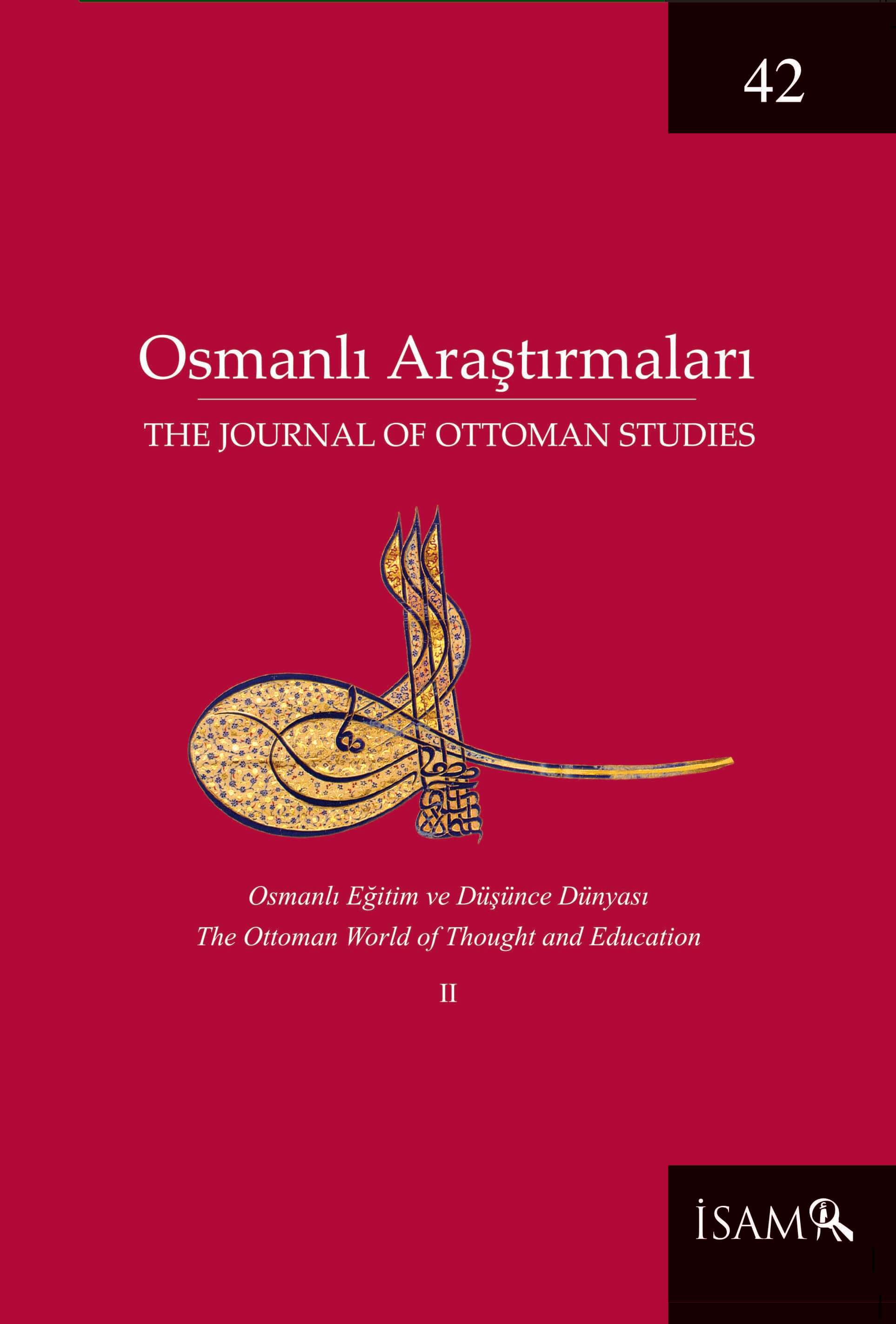The Conception of Philosophical Sciences in Aqkirmânî’s Ta’rîfâtü’l-Fünûn wa menâkıbü’l-musannifîn
Keywords:
Muhammad al-Aqkirmânî (d. 1760), 18th Century Ottoman Thought, Philosophy & ScienceAbstract
The purpose of this study is to analyze al-Aqkirmânî’s (d. 1760) conception of science within the framework of his book Ta’rîfâtu’l-funûn wa menâkibu’l-musannifin. al-Aqkirmânî, a prominent 18th-century Ottoman scholar and qadî , wrote a number of books covering fields such as logic, philosophy, theology, hadith, and language. His most famous work which represents his philosophical and scientific view is İklîlü’t- Terâcim. It has been observed that al-Aqkirmânî verified and maintained the scientific mentality of “taksîmü’l-ulûm” in the classical Islamic intellectual tradition with his Ta’rifâtül-fünûn wa menâkibü’l-musannifin. The main source for al-Aqkirmânî’s book was Taşköprîzâde’s Miftâhu’s-sa’âde wa misbâhu’s-siyâde fî mevzûati’l-ulûm. al-Aqkirmânî provides information about a number of scientific books and their authors, as well as descriptions, concepts, and problems of various sciences. His method of systematic analysis begins with the linguistic sciences and continues with logic, hadith, tafsir, fiqh, and kalâm. He divides philosophy into theoretical and practical spheres (al- hikma nazariyya and al-hikma amaliyya), followed by an examination of theoretical sciences, including metaphysics, physics, and mathematics, followed by practical sci- ences, including ethics, economics, and politics. The Ta’rîfâtu’l-funûn is a noteworth contribution to the the continuity of Ottoman intelectual and scientific tradition in the 18th century.




